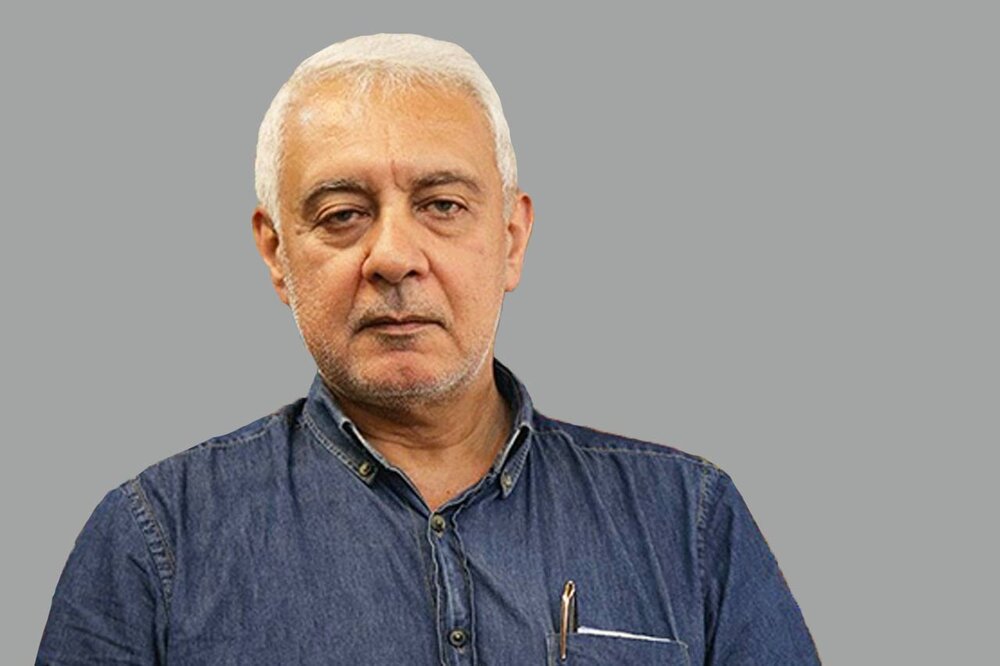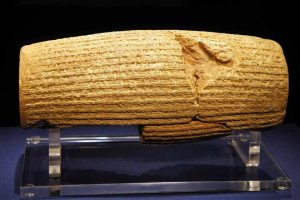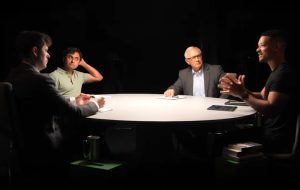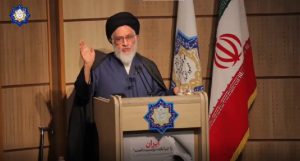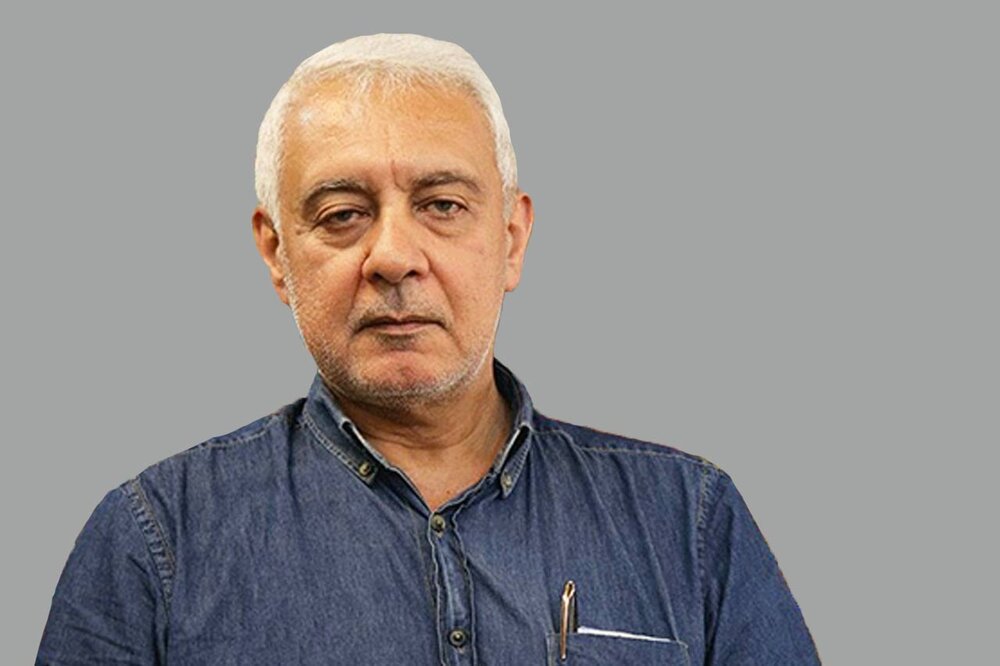
Perhaps this statement of Ahmad Shamlou is the story of one of the main problems of Iranians: “Our history shows that this mass has no historical memory. He does not have a collective memory, he has never learned anything from his objective social experiences and he has never benefited from it, and as a result, wherever the knife has reached his bone, he has rolled sideways, from vulgarity to vulgarity – and he has deceived himself by considering this lateral movement as a movement towards progress. And this is the same story of the left in Iran, which has always put Iran in a state of stagnation with its extremism, just like the extremism inside the political regime, by denying consensus and the ruling logic. Dr. Mohammad Mohammadi Gorgani, a retired professor of human rights at Allameh Tabatabai University, who was one of the prominent and theoretical cadres of the early People’s Mojahedin Organization before the revolution, wrote on his Telegram channel regarding the atmosphere depicted in the last letter of Faiza Hashemi Rafsanjani:“It is surprising and painful that after nearly fifty years we are witnessing the repetition of similar events.” and Abbas Abdi He congratulated Fazeh for her brave portrayal of the situation inside the prison. but What is the cause of all this?
The thought and policy of elimination, what disasters it has not brought about in the contemporary history of Iran. Now, a part of this catastrophic thinking has been raised in Faiza Hashemi Rafsanjani’s last letter about the organized violence among political prisoners and more importantly, the possibility of his murder by his fellow prisoners, which is based on the policy of confronting the political system with any possible method. They nurture every act of disharmony within themselves. A policy left over from the guerilla policies of the 40s and 50s and the beginning of the revolution by fueling the civil war, which consider elimination as the only solution. A policy that showed its inefficiency before the revolution with the Marxist organization of the Mojahedin, known as the current Mojahedin. Is Iran facing the deviation of new thinking and ideology on the religious fundamentalist right and its own fundamentalist left?
“Confrontation and elimination” had done its job: secret life, theory formulation in suffocation, and armed subversion. The intellectual foundations of this approach, for the mujahids who always spent day and night in team terror houses with the thoughts of the people in their heads and their love in their hearts, and were looking for the realization of their religion and the implementation of the Quranic verses, is there anything other than the realization of the heavy experience of failure? What kind of disaster was followed by rain? Did the early leaders think that the principle of policy would have unintended consequences that would overshadow those sacred goals of the will, and would transform that policy into an anti-creative one in nature? Did they think about the question of whether it is possible to include the principle of armed struggle and acts of violence in the thinking, method, character and policy, and peace and tranquility and freedom come out of it?
Dr. Mohammad Mohammadi Gorgani, In his book called “Memories and Reflections in the Shah’s Prison”, pp. 452 and 453 of Nei Publications, he mentioned the said experience. He shows well how the political fighters in the prison dominated the prison atmosphere, and under the pretext of confronting the Shah’s dictatorship, they started to create a new dictatorship and with their undisputed power in the prison, another prison was established in the heart of the bigger prison. they did He writes about the goals and ideals of the organization:
Tyranny for freedom
It was a poem that ordinary people read at that time, and I became bitter and sweet and read:
I begged his dog to get to know me
I did not know that a dog becomes bloodthirsty if it eats blood
Wow, it’s a story, we came to free a nation, now how easily we have imprisoned people We say that we are fighting with a hellish power, but we have made hell ourselves. We categorically deny dictatorship, but to deny dictatorship, we become dictatorship ourselves. We said that we will create a new type of human being, but we will make humans obsolete. We said that the liberation of man is our goal, but we ourselves have become the criteria for liberation, right and truth. Whoever is with me, like me, is right. Whoever is not with me, whatever he is, there is no pity. I was sad. I had read the literature of the Stalin era. I kept my head in my neck and laughed at myself and history. This was my fun and my suffering was my pain and my cure. On the one hand, I enjoyed understanding and understanding all the so-called humor of history, and on the other hand, I suffered because of the fate of those who are caught on the illusory horse of their illusions. What a day it was, what a mood it was. God willing, it will not be repeated for any nation and people.
Woe to the victims of such days, woe to those who saw all their identity and existence wasted; The captives who were captured by the freedom defenders for their love of freedom, prisoners in prison, what a contradiction, what a bitter irony? I will capture you until you are free, I will strangle you until you breathe, I will humiliate you until you become dear, I will bind you until you are not bound, follow me until you are not a follower, I will control you until you are freed from the control of Savak.
I’m not a smart person, I don’t understand more than others, but I understood like daylight that this is a contradiction. Many times I sat on my knees until morning in my loneliness. I was not aware that I was sitting on my knees, I was crying and laughing. I was bitter and sweet. My God, what a story. »
In order to escape from the prison of the Mojahedin organization, Mohammadi Gorgani sought refuge in solitary confinement, that is, the worst part of the prison, so that he could define the boundaries of his great historical decision to separate from Masoud Rajavi and the organization. And Savak is puzzled as to why he is asking to be transferred to solitary confinement. Savak thinks that everyone wants to get out of solitary confinement, but he wants to be transferred to solitary confinement. A month of solitary confinement was the basis for his release from prison. the book Memories and Reflections in Shah’s Prison” Dr. Mohammadi Gorgani can be Manousi’s companion for Faezeh in prison.
After the revolution, three currents played a decisive role in the events of Iran: 1- the clergy, 2- the confederation, and 3- prisons, especially Evin and Savak prisons. Meanwhile, the prison experience was perhaps one of the most important factors in the formation of subsequent conflicts in the Iranian revolution and the formation of the civil war. This issue is an independent discussion.
Perhaps the story of Evin prison is the most important in this regard. The dominant government in Evin prison was under the control of the organization, they considered themselves pioneers and Muslim leaders against domestic tyranny and imperialism. Marxists were in the next ranks as intellectual and strategic allies of the organization, and in the third stage were the religious forces. Based on this hierarchy, insider and outsider patterns were adjusted in the relationships of the organization. Based on the theoretical and organizational power, the organization had the last word, any other speech outside of the organization’s line of thought and policy was boycotted and suppressed in various ways. Boycott Makhmalbaf movie is a part of the mentioned relationships.
Mohammadi Gorgani writes in his book Memories and Thoughts in Shah Prison on pages 325 and 326: “Once in Ward 2 of Evin Prison, a SAVAK interrogator messenger came to the children and after talking, he asked if anyone wanted to be released from prison. ? Shahid Rajaei raised his hand. …Masoud Rajavi claimed that Rajaei was cut and lost the ability to resist and be imprisoned and should be punished….In a meeting on Friday evening when most of the prisoners gathered,…Rajaei said that we must let’s meet In a three-person meeting with Masoud and Musa, Rajavi said harsh words against Rajaei. He shouted that he, that is, Rajai, gave a razor to Savak’s hand to take away the cold. According to Rajaee’s words, that means we don’t deal with Islam… (with Masoud insulting Rajaee) he asked me to deal with him so that he would be polite, and repent and he should come and because of this word (in public) ) to criticize…I objected to him (Masoud), and I explained Rajai’s strengths, I told him about his resistance in prison, and I asked him to comply. We, who are true Islam today, have been questioned. Today, anyone who is against us is against Islam, against Ali, and against the Qur’an. Today, SAVAK and imperialism are in front of us… I talked to Rajaei, Kalami said that his oppression and honesty still remain in my heart. He said: “Mohammed, what did I say?” … Massoud asked Musa to talk to Rajaei. And… Rajaei came to a meeting on Friday evening, and while I knew he didn’t agree, he apologized for what he said in the previous meeting.”
Mohammadi Gorgani’s memoirs show that the organization had succeeded in replacing God in the eyes of its members and forming another prison within the framework of its philosophical thoughts as well as its policy of armed struggle in the prison, and in the meantime any criticism towards itself with Humiliate and suppress. The impact of 1954 and the Marxistization of the organization, and the assassinations within the organization and the martyrdom of Majid Sharif Waqfi and Samadiyeh Labaf, had their roots in this matter.
In this regard, Keyvan Samimi talks about Rajavi’s intellectual repressions on his Telegram channel, “Two years before 1957, after many discussions, I had separated from the organization. We used to walk in the Band yard with Masoud Rajavi, who was the same age, and I listened to his talk about the necessity of my return to the organization. Saeed Shahsundi and Abbas Davari were a little further. After listening to his words, Massoud interrupted me and said that anyone should not criticize, criticizing requires qualification. Return to the organization and after going through the qualification process, you can criticize and reform the organization from within.” Faraj Sarkohi, in his interview with BBC, also referred to the movements of the Marxist dictator Maabane in prison, and the fact that No one could say that Bijan Jazni’s theories were mentioned above his eyebrows.
The back and forth between the organization’s experience and Faezeh’s current experience is why I remind Ahmed Shamlou’s words that it is as if we do not have a collective memory. However, Faezeh Hashemi’s experience is a very important experience and a dangerous experience in its own way. Where the ideological view of elimination has been formed, he seeks to realize his policy by building new prisons in any possible way, especially where he writes in his letter:My cousin, who seriously believes in the interpretation of her dreams, had a dream not long ago that she was being killed by inmates in prison. Have subversive political forces reached a new stage of organized crime?
This part of the letter shows the story of monopolization inside the prison at its peak, where any other disaster is possible at any moment. Before this, perhaps it was the first time that Ahmad Zeidabadi tried, considering the critical situation of Iran, with all the criticisms he had and has towards the political system, while explaining the damages of subversion as neither possible nor desirable, to the adventures of pay in prison He quickly realized how, both in prison and outside, he was exposed to the venomous arrows of yesterday’s friends and today’s enemies. He wrote about Faezeh Hashemi’s letter in his Telegram channel:
“Ms. Hashemi has shown unparalleled courage by writing this letter, such a move requires courage beyond challenging the most fearful governments, and only those who understand the value and importance of it who have had a similar experience. Ms. Hashemi should wait for the sharpest Verbal attacks from all sides of his family, but his moral and political courage, which has become the “real voice of the voiceless”, will not remain unrewarded in the eyes of God. Perhaps this speech of Zeidabadi was a response to the high-level words spoken in Savak prison by the leaders of the People’s Mojahedin Organization, which Alijani said in an interview with the BBC about the letter of Ms. Faizah Hashemi: “The most important strategic lesson we learn from these disputes This is…even though Faeze said she wants to enlighten, this letter actually puts bread on the table of autocrats and opponents of democracy.”
Aristotle in the book The art of poetry In the definition of tragedy, he writes:
“Tragedy is an imitation of a serious and complete action.” One of the coordinates of tragedy is that, like epics, it is always accompanied by prophecy and prediction. In the eyes of Iranians, the lack of tragic thinking means that in any incident, we do not evaluate the worst part of the story as much as possible, and inevitably, false optimism takes its place. If Evin and Savak prisons and its crises had been properly investigated by political forces, would it be possible to repeat the experience of the 50s in the first decade of the 400s? The lack of coherent work is the biggest weakness of the country’s political forces in the governance of the political system and its opposition. If the story of the prison, SAVAK and the organization had been properly investigated, today instead of a thin sapling, the theory of consensus would have turned into a stout tree?
Regardless of Mohammadi Gorgani’s question, the most important question in Iran’s contemporary history is the land, which for any agreement and development, Iran’s religious extremists and the subversive opposition must answer, and that is the possibility of liberating the people with the theory of “I will strangle you until you breathe.” “I humiliate you so that you become dear” is there? Can prison construction by shaping mechanical people be harmonious and liberating?
Read more:
Shah to Moghadam, the head of the Program and Budget Organization: You are talking nonsense again / the rule of fear over specialized topics / the humiliation of the result of talking to the Shah about the country’s priorities
Farastkhah, Rahmanian, and Mirzaei’s warning about the threats to…
Mohammadi: Without the presence of ethnic groups in power, the alliance will not be formed / Doctors should learn from South Korea and Taiwan for the development of Iran / Political Islam needs all-round modernization
Why were 731 banks attacked in the events of 2018?
Midari’s narration of security requirements in Iran / without empowerment..
216216
منبع: www.khabaronline.ir

